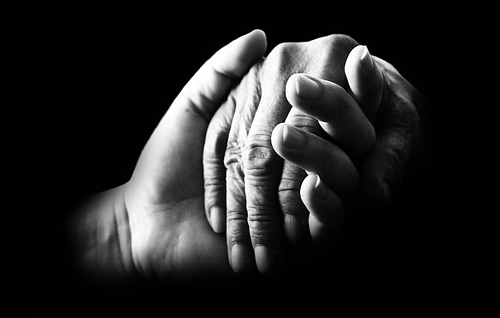Caring for an Elderly Parent with Chronic Kidney Disease
Caring for an Elderly Parent with Chronic Kidney Disease

If you are caring for an elderly parent living with chronic kidney disease, it is important that you stay on top of this condition since the elderly are at a significantly higher risk of kidney disease progressing to kidney failure or death. Unfortunately, kidney disease is not always easy to detect, leaving many older Americans at a high risk without even knowing it.
Kidney disease occurs when the blood filtering units-or nephrons-of the kidney become damaged and cause a buildup of toxic waste and fluids in the body. Chronic kidney disease occurs when there is one-third of a loss of kidney function for more than three months.
What follows are some of the most common symptoms of kidney disease:
- Back pain
- Blood in the urine and/or more frequent urination
- Confusion or trouble concentrating
- Fatigue
- Headache
- Hypertension
- Itching
- Loss of appetite
- Metallic taste in the mouth
- Nausea
- Rash
- Shortness of breath
- Sleep issues
- Swelling of the ankles, feet and legs
Unfortunately, many individuals may lose up to 90 percent of kidney function before any symptoms develop. So how are you to know if your loved one is suffering from chronic kidney disease? According to the health care professionals at Physicians Choice Private Duty, if you suspect your parent is suffering from kidney disease, get their blood and urine checked to measure for the glomerular filtration rate, which indicates how well the kidneys are functioning.
While you may be tempted to take a “wait-and-see” approach to kidney disease this is not a good idea. Kidney disease cannot be cured, only treated, and can get worse over time, leading to kidney failure. Once the kidneys fail, the only options are dialysis or a kidney transplant. Therefore, the sooner you know your parent is suffering from kidney disease, the better the disease can be managed.
Diabetes and high blood pressure are the leading causes of kidney disease and occur in approximately 70 percent of kidney failure cases. Other risk factors include heart disease or a close relative with kidney disease.
Some patients can live for years with the help of dialysis but once it is discontinued death can occur within weeks. Depending on the age and health of your loved one, deciding whether to begin dialysis, or when to discontinue it, can be extremely difficult. Much will depend on the advice of your loved one’s doctor and your parent’s wishes. If your parent is in the last stages of kidney disease and is not receiving dialysis, palliative care and other options should be explored.
If your parent chooses to go on dialysis, it is important that you understand all that is involved in caring for a person with a chronic health condition. Even if you do not provide full-time care for your parent, your role as their child is significant and while rewarding, also can be challenging. Often, children become so overwhelmed with their parent’s needs that they neglect themselves-leading to mental and physical problems. That is why it is important that you always take care of yourself and seek out help when you are feeling overwhelmed or stressed.
